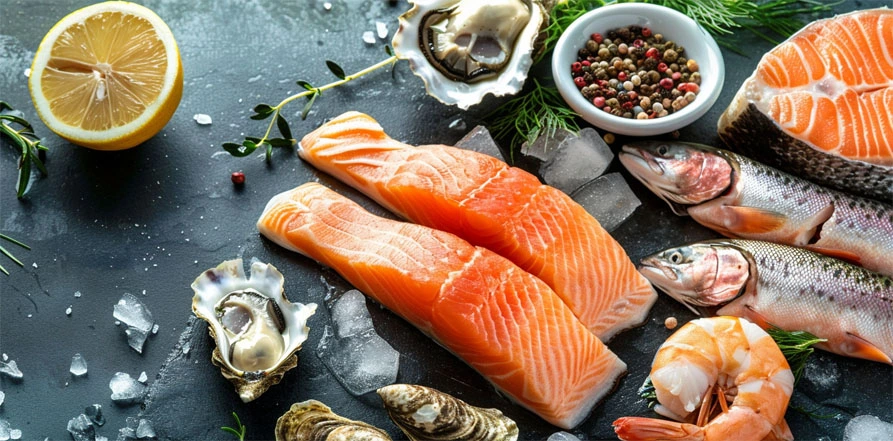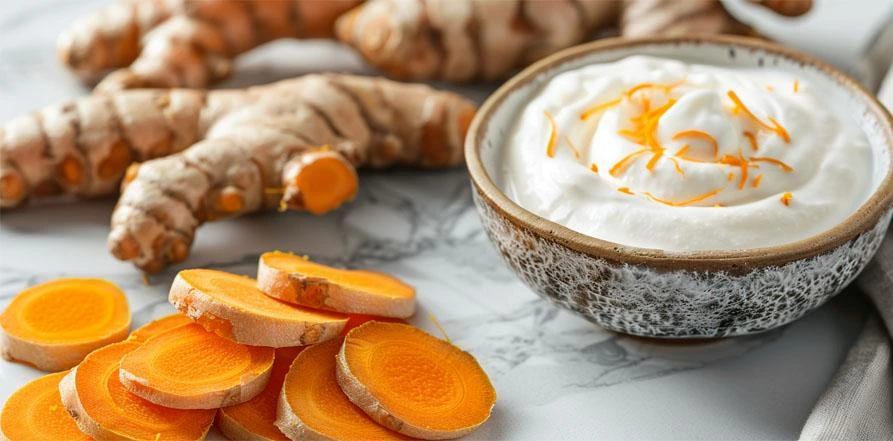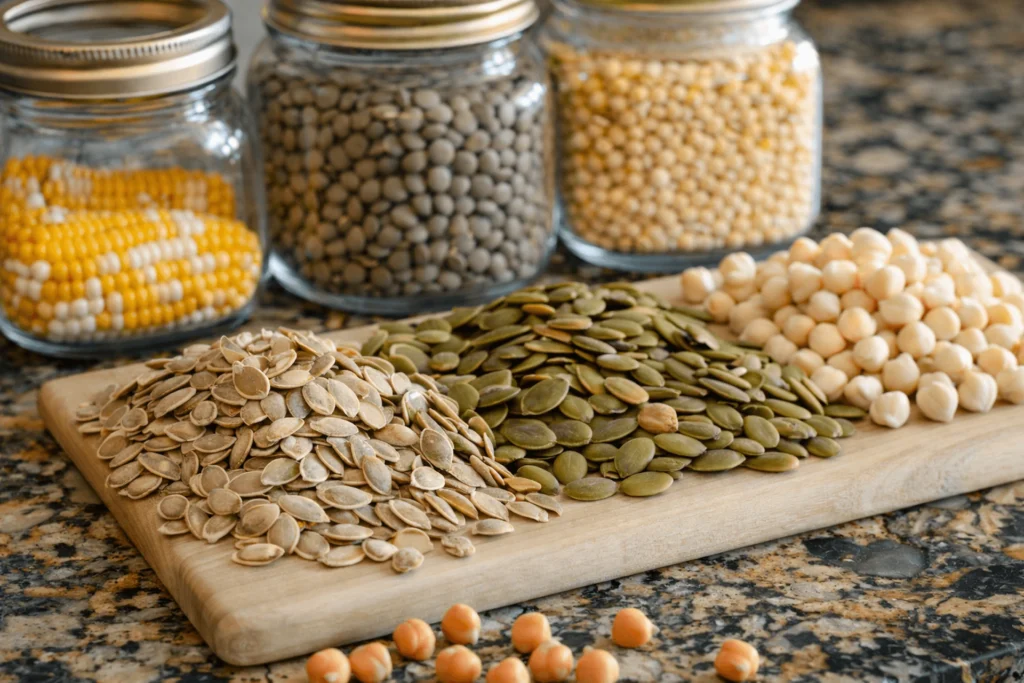In part 1 of this series, I provided an in-depth evaluation of the powerful role that diet plays in cardiovascular health, particularly in regard to achieving healthy cholesterol levels. As I pointed out in that post, I do not recommend statins, except in rare cases. Even then, the dosages I recommend are far less than the current standard of practice dictates.
Although cholesterol is often singled out as the cause of cardiovascular disease, this waxy, fat-like substance is essential to our health. Cholesterol is found in every cell, and is an important component of the membrane that surrounds cells. It’s also necessary for hormone production, specifically the hormone pregnenolone, which is the precursor to all other steroid hormones. Additionally, cholesterol is the precursor for bile acids that are necessary for digestion and provitamin D.
I find it ironic that as we age we are given drugs to lower cholesterol, and then prescribed hormone replacement therapy. What we should be doing is using botanicals to improve the efficient transfer of cholesterol into hormones, as well as the signaling and reception of hormones to their appropriate receptors. The result of this approach will be healthy cholesterol levels and a balanced hormonal system.
Many important adaptogenic anabolic herbs contain various plant sterols, compounds found in plant cell walls that are chemically similar to cholesterol. Plant sterols provide the body with a host of benefits and are associated with a reduced incidence of chronic diseases, including cancer and heart disease. In a number of clinical studies, plant sterols have consistently been shown to lower LDL cholesterol by at least 10 percent, while at the same time improving other areas of health such as reproductive health. 1
A report published in the March 2006 issue of the American Journal of Clinical Nutrition found that consuming a combination of cholesterol-lowering foods reduced low-density lipoprotein (LDL) cholesterol similarly to a statin drug.
In this study, researchers at the University of Toronto prescribed diets containing high amounts of plant sterols, soy foods, viscous fibers and almonds to 66 men and women with elevated lipids. Fifty-five participants completed the twelve-month study. Prior to the current study, 29 of the subjects had completed a short trial involving statin drugs.
The subjects maintained dietary records and had their cholesterol levels measured every two months by the researchers. At the study’s conclusion, 31.8 percent of the participants had lowered their LDL-cholesterol by more than 20 percent, comparable to the reduction achieved with statins in the earlier trial. 2
For the vast majority of people, the ETMS (Eclectic Triphasic Medical System) approach, which includes botanical, nutritional, dietary, and life-style toolboxes, will effectively normalize cholesterol profiles and cardiovascular health. I thoroughly addressed the dietary toolbox in Part 1 of this series; in this post, I’ll offer guidance for botanical and nutritional support that can help to optimize cholesterol levels. The great benefit of the ETMS approach is that it improves overall health while bringing cholesterol levels into a healthy range.
Include Heart Healthy Fish Oils
One of the first recommendations I make for heart health, including normalizing cholesterol, is to increase consumption of cold-water fish. Salmon, sardines, trout, and other cold-water fish are rich in EPA and DHA, a unique form of omega-3 fatty acids.
While many people know that wild salmon and sardines are good for heart health and help to normalize cholesterol, few are aware that shrimp, squid and octopus also lower harmful cholesterol and improve heart health (however, frying negates the health benefits). 3,4 I find that most people benefit from taking a quality fish oil supplement in addition to consuming cold-water fish.
In a large review of well-designed studies, researchers at Tufts-New England Medical Center evaluated studies reporting omega-3 intakes and cardiovascular disease outcomes (CVD). Care was taken to separate interventions using alpha-linolenic acid (ALA) from interventions using eicosapentaenoic acid (EPA), docosahexaenoic acid (DHA), or EPA plus DHA. Most of the large cohort studies reviewed—involving more than 340,000 participants in total—reported significant reductions in CVD. In summary, they noted that fish consumption was associated with lower rates of all-cause mortality and adverse cardiac outcomes, and that evidence suggests that increased consumption of omega-3 fatty acids from fish or fish-oil supplements, but not of alpha-linolenic acid, reduces the rates of all-cause mortality, cardiac and sudden death, and possibly stroke. 5
Another recent study compared the lipid-lowering effects of an alternative regimen (lifestyle changes, red yeast rice, and fish oil) with statins. This trial enrolled 74 patients with hypercholesterolemia. All participants were randomized to an alternative treatment group (AG) or to receive simvastatin (40 mg/d). The alternative treatment included therapeutic lifestyle changes, ingestion of red yeast rice, and fish oil supplements for 12 weeks. The simvastatin group received medication and traditional counseling. The researchers concluded that lifestyle changes combined with ingestion of red yeast rice and fish oil reduced LDL-C in proportions similar to standard therapy with simvastatin. 6
In my practice, I recommend a proprietary unique fatty acid combination that blends high quality fish oils with Siberian Sea Buckthorn oil (a concentrated source of bioavailable carotenoids), Pine seed oil (rich in gamma linolenic acid and omega-3’s), tocotrienols, and organic vitamin E, all of which enhance the cardiovascular benefits.
Improve Body Mass Index, Anabolic Metabolism and Hormone Regulation
Statin drugs break down the body, reduce CoQ-10 levels, and have cumulative toxic effects on the liver, kidney, muscle tissue and heart.7 This is important, because body mass index is the most significant risk factor for a reduced risk of heart disease and for a long and healthy life.8,9 Normalizing hormones—including testosterone, DHEA, estrogen, and growth hormone—is essential for ensuring cardiovascular health. But rather than artificially replacing these hormones with exogenous hormones, which often creates more problems, I recommend using adaptogenic formulations that provide your body with the assistance it needs to support and regulate the neuroendocrine and endocrine systems.
Enhancing the body’s production of essential hormones by bringing the endocrine system into balance, with the help of botanical and nutritional agents, is a long-term solution that does not lead to dependence on exogenous hormones. On the contrary, providing the body with the support it needs facilitates glandular development, better communication between organ systems, and can alleviate the need for continuous supplementation. (For an in-depth exploration of the role adaptogens play in cardiovascular and overall health, see my book, Adaptogens in Medical Herbalism: Elite Compounds for Mastering Stress, Aging, and Chronic Disease.)
Control Gene Expression, Inflammation, and Oxidation
Atherosclerosis, the main cause of cardiovascular disease (CD), is a chronic inflammatory condition that is associated with an overproduction of oxidant species, namely peroxynitrite, a powerful oxidant that reacts directly with all biomolecules. Glutathione is an efficient scavenger of peroxynitrite, and modulation of glutathione synthesis may provide a strategy to selectively protect cells from this oxidant. Studies show that higher levels of plasma glutathione (GSH) are associated with a lower incidence of cardiovascular disease.
Glutathione is formed in the body from three amino acids (cysteine, glycine, and glutamic acid), and forms a part of the antioxidant enzyme glutathione peroxidase. Undenatured raw whey protein concentrate (WPC), which is rich in cysteine, raises glutathione levels. For cardiovascular health, I recommend a raw WPC that contains a patented mitochodrial enhancing amino acid chelate, magnesium creatine and a natural covalent bonded glutamine.
In addition, I recommend botanicals including turmeric, green tea, and grape skin and seed, as well as a concentrated form of resveratrol extracted from Polygonum cuspidum. These plants contain natural antioxidant and anti-inflammatory compounds that help to spare glutathione, reduce oxidative damage and vascular inflammation, and control genes that are critical for cardiovascular health, disease prevention and a long lifespan. 10,11,12
For best results, these key cardio-protective compounds should be used in therapeutic doses standardized to the active ingredients. I suggest the following:
- turmeric extract (curcuminoids 95%)
- green tea extract (phenols 95%, EGCG 40%)
- grape seed extract (95% OPCs)
- resveratrol from Polygonum cuspidum (20%)
Other important botanicals for heart health include concentrated extracts of holy basil, rosemary, amla, ginger, and the flavone, quercetin, all of which contribute to the enormous cardiovascular protective benefits. Using these nutrients in a combined formula offers broad-spectrum beneficial effects.
Heart disease recently fell behind cancer as the number one cause of death in the United States. However, this is not due to significant improvements in the management of cardiovascular health, but rather, to the increasing numbers of people afflicted by cancers of all kinds.
The prevention and management of cardiovascular disease is not simply to administer statin drugs, but rather to educate people in the ways in which they can positively affect their risk factors through diet, exercise, and the use of botanical and nutritional supplements. In extreme cases, emergency medicine is indispensable, and we have a host of powerful pharmaceutical medicines to bring people out of life threatening situations. I believe that by combining biomedical diagnosis and pharmaceutical administration when necessary with a holistic system of education and treatment focused on long-term solutions for chronic conditions, we can achieve optimal results.
References:
- Ras RT, Geleijnse JM, et al. LDL-cholesterol-lowering effect of plant sterols and stanols across different dose ranges: a meta-analysis of randomised controlled studies. Br J Nutr. 2014 Jul;112(2):214-9. doi: 10.1017/S0007114514000750. Epub 2014 Apr 29.
- Jenkins DJ, Kendall CW, et al. Assessment of the longer-term effects of a dietary portfolio of cholesterol-lowering foods in hypercholesterolemia. Am J Clin Nutr. 2006 Mar;83(3):582-91.
- Tanaka K, Sakai T, Ikeda I, Imaizumi K, Sugano M. Effects of dietary shrimp, squid and octopus on serum and liver lipid levels in mice. Biosci Biotechnol Biochem. 1998 Jul;62(7):1369-75
- De Oliveira e Silva ER, Seidman CE, Tian JJ, Hudgins LC, Sacks FM, Breslow JL. Effects of shrimp consumption on plasma lipoproteins; Am J Clin Nutr. 1996 Nov;64(5):712-7.
- Wang C, Harris WS, et al. n-3 Fatty acids from fish or fish-oil supplements, but not {alpha}-linolenic acid, benefit cardiovascular disease outcomes in primary- and secondary-prevention studies: a systematic review. Am J Clin Nutr. 2006 Jul;84(1):5-17.
- Becker DJ, Gordon RY, et al. Simvastatin vs therapeutic lifestyle changes and supplements: randomized primary prevention trial. Mayo Clin Proc. 2008 Jul;83(7):758-64.
- Dirks AJ, Jones KM. Statin-induced apoptosis and skeletal myopathy. Am J Physiol Cell Physiol. 2006 Dec;291(6):C1208-12. Epub 2006 Aug 2.
- Schubert CM, Rogers NL, et al. Lipids, lipoproteins, lifestyle, adiposity and fat-free mass during middle age: the Fels Longitudinal Study. Int J Obes (Lond). 2006 Feb;30(2):251-60.
- Ran XW, Li XS, et al. Body fat distribution: its characteristics and relationship to cardiovascular risk factors in obese Chinese. Sichuan Da Xue Xue Bao Yi Xue Ban. 2004 Sep;35(5):699-703.
- Brito PM, Mariano A, et al. Resveratrol affords protection against peroxynitrite-mediated endothelial cell death: A role for intracellular glutathione. Chem Biol Interact. 2006 Sep 28.
- Schroecksnadel K, Winkler C, et al. Anti-inflammatory compound resveratrol suppresses homocysteine formation in stimulated human peripheral blood mononuclear cells in vitro. Clin Chem Lab Med. 2005;43(10):1084-8.
- Wang Z, Zou J, et al. Dealcoholized red wine containing known amounts of resveratrol suppresses atherosclerosis in hypercholesterolemic rabbits without affecting plasma lipid levels. Int J Mol Med. 2005 Oct;16(4):533-40.








